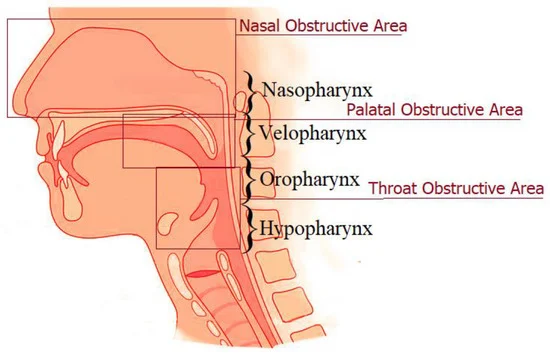Sleep Apnea

What is Sleep Apnea?
Sleep apnea is a serious sleep disorder where breathing repeatedly stops and starts during sleep. There are two main types: obstructive sleep apnea, the more common form that occurs when throat muscles relax, and central sleep apnea, which occurs when your brain doesn't send proper signals to the muscles that control breathing.
Who’s at Risk for Sleep Apnea?
Risk factors for sleep apnea include obesity, male gender, older age, family history of sleep apnea, use of alcohol or sedatives, smoking, and medical conditions such as chronic nasal congestion or having a narrow airway.
What Causes Sleep Apnea?
Obstructive sleep apnea is caused when the muscles in the back of your throat relax too much to allow normal breathing. Central sleep apnea is caused by your brain failing to transmit signals to your breathing muscles.
How Does Sleep Apnea Start?
Sleep apnea starts when the brain fails to maintain the muscle tone in the throat and tongue, or fails to control the breathing mechanism, leading to periods of halted breathing during sleep. These episodes can occur a few times a night in mild cases, or several times an hour in severe cases.
What are the Symptoms of Sleep Apnea?
The most common symptoms of sleep apnea include loud snoring, episodes of stopped breathing during sleep, gasping for air during sleep, awakening with a dry mouth, morning headache, difficulty staying asleep (insomnia), excessive daytime sleepiness (hypersomnia), difficulty paying attention while awake, and irritability.
How is Sleep Apnea Diagnosed?
Sleep apnea is typically diagnosed through a sleep study test called polysomnography, performed in an overnight sleep laboratory. Home sleep testing is also becoming more common. These tests measure and record specific physical activities while you sleep.
How Can Sleep Apnea be Treated?
Treatment for sleep apnea may include lifestyle changes, such as weight loss or quitting smoking. Continuous positive airway pressure (CPAP) therapy, where a machine delivers air pressure through a mask while you sleep, is a common treatment. Dental devices or surgery can also be treatment options in some cases.
What Complications May Occur with Sleep Apnea?
Sleep apnea can lead to a number of health complications, including high blood pressure, heart problems, type 2 diabetes, metabolic syndrome, liver problems, and complications with medications and surgery. Additionally, the regular sleep interruptions can lead to significant daytime fatigue, leading to difficulties at work or school and an increased risk of motor vehicle accidents.
How Can I Prevent Sleep Apnea?
While not all instances of sleep apnea can be prevented, lifestyle modifications can reduce your risk. These include maintaining a healthy weight, regular exercise, a balanced diet, avoiding excessive alcohol, quitting smoking, and establishing a regular sleep schedule.
Long-term Management of Sleep Apnea
Long-term management of sleep apnea usually involves lifestyle modifications and use of a CPAP machine. Regular follow-up care with a sleep specialist is important to monitor the condition and adjust treatment as necessary. In some cases, surgery may be considered for long-term management.
What is Recent Research Saying About Sleep Apnea?
Recent research on sleep apnea has focused on understanding the genetic factors contributing to the condition, investigating the links between sleep apnea and other medical conditions, and developing new and more effective treatments. There is also ongoing research into improving CPAP devices and other treatment devices for better comfort and compliance.
Where Can I Go For More Information on Sleep Apnea?
For more information on sleep apnea, you can visit websites like the American Sleep Apnea Association or the National Sleep Foundation.

